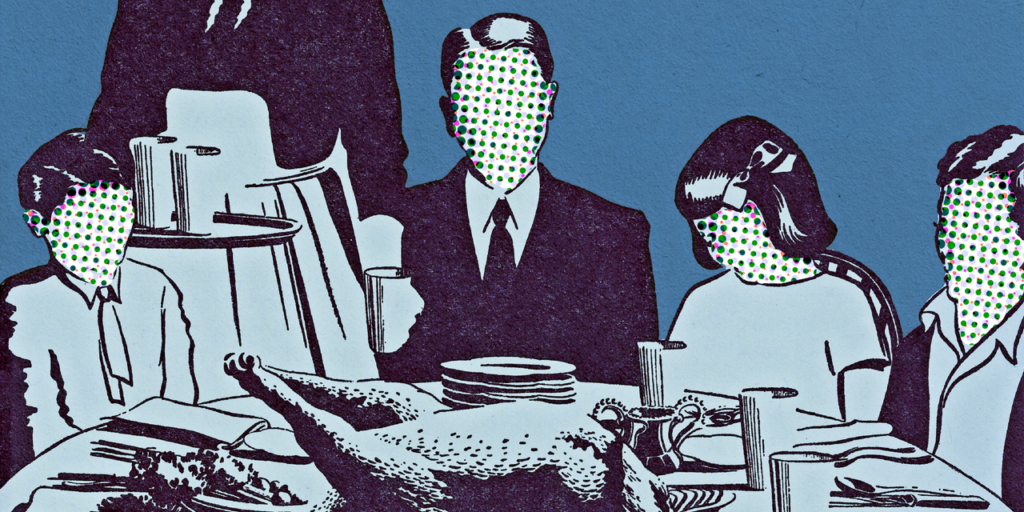For example, maybe you wear your late parent’s favorite (and annoyingly scratchy) holiday sweater to your annual family brunch, Moffa suggests, or cook their favorite meal on Thanksgiving—even if it’s a rotisserie chicken in lieu of the conventional turkey. Or if your old-school grandpa was a sucker for drive-in movies, consider ditching Netflix in the living room and bring your relatives to a nearby parking lot screening of Elf instead.
Your new rituals don’t have to be extravagant or well-thought-out, Moffa says: “Think of these changes as an opportunity to celebrate their life and focus on doing even small things to keep them alive.”
Volunteer for a cause they really cared about.
Giving back is a research-supported way to feel physically and emotionally better, and if you’re lost without your person, it can be a lifeline. “With grief in particular, it can be really hard to feel like you have a sense of purpose,” Moffa says. “Volunteering can take your mind off of your own loss by giving you a chance to step back and [help] somebody else in need.”
Personalizing the experience as a way to honor your late friend, partner, family member—whomever—can also be really meaningful, Moffa and Dr. Cormier add. If your sibling absolutely adored their toy poodle, volunteer at a dog shelter on New Year’s Day, for example. Or if your niece or child died after a yearslong battle with cancer, you might find comfort in donating to an organization dedicated to leukemia research, or spreading awareness about the disease on social media. Through these acts of kindness, you’re keeping your loved one’s memory alive in one of the most rewarding and generous ways, Dr. Cormier says.
Identify—and avoid—your grief triggers, as best you can.
Triggers differ for everyone: Yours might be a place (like the park you frequented together on Sunday mornings), an item (like leftover kibble your kitty never finished), or even a smell (like the scent of your loved one’s fruity perfume). “For me, it was church,” Dr. Cormier says. “I just couldn’t go for a year or two. Same with music: It was very triggering because my late husband and I shared a lot of favorite songs.”
Once you ID what prompts your pain, Dr. Cormier recommends trying your best to avoid those things and situations—at least until you’re better able to deal with the emotions they bring up. The goal isn’t to completely eliminate these reminders from your life, Dr. Cormier emphasizes. Rather, you’re giving yourself space and time to grieve in a way that is more manageable during an already stressful time.
Treat yourself to something special.
Showing yourself kindness, as you would to a friend, can be a great pick-me-up, especially in the thick of grief. And what better (and more festive) way to practice self-love during the holidays than with a little present, just for you? “Maybe go to a concert, get a massage, or buy a new book,” Dr. Cormier suggests. Not only can this small gesture help you tend to your well-being (at a time when everyday things like getting out of bed may seem impossible), but it’s also a subtle (less triggering) way to acknowledge and celebrate the season, she says.
Set—and communicate—your boundaries before holiday events.
In social situations, there’s often pressure to fake a smile or stay at the get-together longer than you’d like. However, Moffa says it’s especially important to establish and communicate your boundaries if you’re grieving—even if that means ditching certain events or making an early exit.
